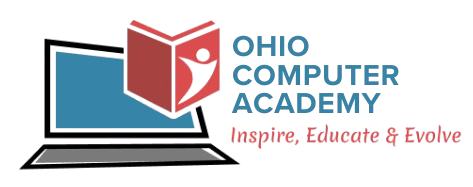Launch your career in Databases by developing in-demand skills and become job-ready in 30 hours or less.
Highlights
Upgrade your career with top notch training
- Enhance Your Skills: Gain invaluable training that prepares you for success.
- Instructor-Led Training: Engage in interactive sessions that include hands-on exercises for practical experience.
- Flexible Online Format: Participate in the course from the comfort of your home or office.
- Accessible Learning Platform: Access course content on any device through our Learning Management System (LMS).
- Flexible Schedule: Enjoy a schedule that accommodates your personal and professional commitments.
- Job Assistance: Benefit from comprehensive support, including resume preparation and mock interviews to help you secure a position in the industry.
Outcomes
By the end of this course, participants will be equipped with:
- Comprehensive Knowledge of SQL and Oracle Database: Participants will understand fundamental concepts of SQL and the architecture of Oracle Database, equipping them with a solid foundation for database management.
- Proficiency in Writing SQL Queries: Learners will be able to write, execute, and optimize complex SQL queries to retrieve and manipulate data effectively.
- Data Manipulation Expertise: Participants will gain hands-on experience in performing data manipulation operations using Data Manipulation Language (DML) commands, including inserting, updating, and deleting records.
- Advanced Query Techniques: Attendees will master advanced querying techniques, including joins, subqueries, common table expressions (CTEs), and window functions, enabling them to tackle complex data retrieval tasks.
- Effective Use of Built-in Functions: Participants will utilize various built-in Oracle functions to perform calculations and conversions, enhancing their data analysis capabilities.
- Data Definition Skills: Learners will manage database structures by creating, altering, and dropping tables and indexes, as well as defining and implementing constraints.
- Familiarity with User Management and Security: Participants will understand how to manage users and roles within the Oracle environment, including granting and revoking permissions to maintain data security.
- Performance Tuning Knowledge: Attendees will analyze and optimize query performance, using execution plans and indexing strategies to improve efficiency and response times.
- Expertise in PL/SQL Programming: Participants will develop strong skills in writing and executing PL/SQL code, including creating stored procedures and functions to automate data processing tasks.
- Control Structures and Exception Handling: Learners will understand how to implement control structures (IF statements, loops) and employ exception handling techniques to maintain robust PL/SQL code.
- Understanding Triggers and Cursors: Participants will be able to create triggers for automating database tasks and manage cursors for efficient row-wise processing of data.
- Optimization Techniques: Attendees will learn to analyze query performance and apply optimization techniques, including indexing and understanding execution plans, to improve SQL query efficiency.
- Best Practices in Security and Data Management: Participants will understand the importance of security and develop strategies for implementing security measures in database management.
- Real-World Application through Hands-On Projects: Engage in practical exercises and projects that simulate real-world database development and administration scenarios, reinforcing the skills learned throughout the course.
- Preparation for Advanced Roles: Equip participants with essential skills needed for advanced positions such as Database Administrator, Data Analyst, SQL Developer, or Business Intelligence Developer.
About
Welcome to “Mastering Oracle SQL and PL/SQL: Skills for Database Professionals,” a comprehensive training course designed to equip you with the essential skills needed to navigate the world of database management and data analysis using Oracle technologies.
In today’s data-driven environment, the ability to effectively query, manipulate, and analyze data is crucial for business success. This course provides a deep dive into Oracle SQL and PL/SQL, focusing on its applications in real-world scenarios to empower participants with the tools they need to perform complex data operations confidently.
Throughout this course, you will learn foundational and advanced SQL concepts, including data manipulation, creating and managing relationships between tables, and employing PL/SQL to write effective procedures and functions. Our hands-on approach incorporates practical exercises, providing you with the opportunity to apply your learning in real-world projects, reinforcing your understanding and capabilities.
Key Learnings
- Gain a foundational understanding of Oracle SQL, its syntax, and its role in managing relational databases.
- Learn to create, alter, and drop tables, indexes, and views, ensuring effective organization and storage of data.
- Develop proficiency in using DML (Data Manipulation Language) commands to insert, update, delete, and retrieve data efficiently.
- Master writing complex SQL queries, including JOIN operations, subqueries, and UNION statements to analyze and extract data from multiple tables.
- Understand and apply various built-in Oracle SQL functions, including aggregate functions, string manipulation, and date functions, to derive insights from data.
- Use GROUP BY and HAVING clauses to summarize and analyze data, turning raw data into actionable business insights.
- Learn how to use CTEs for better organization of queries and improve readability, especially for complex queries.
- Understand how to manage users, roles, and permissions in Oracle Database to ensure data security and integrity.
- Learn techniques for optimizing SQL queries and understanding execution plans to improve performance and reduce resource consumption.
- Develop skills to create reports that effectively present data to stakeholders, using Oracle SQL for robust reporting methodologies.
- Gain expertise in PL/SQL programming, including writing procedures, functions, and triggers to automate data management tasks.
- Understand how to implement control structures (IF statements, loops) and exception handling mechanisms in PL/SQL to ensure robust applications.
- Learn to create views that simplify complex queries, providing a layer of security and accessibility to the data.
Pre-requisites
- Participants should have basic computer skills, including the ability to navigate file systems and use software applications efficiently.
- Experience with Microsoft Excel helps with data organization and manipulation skills, which can be useful for understanding data handling in SQL.
Job roles and career paths
This training will equip you for the following job roles and career paths:
- Database Administrator (DBA)
- SQL Developer
- Data Analyst
- Data Engineer
- Business Intelligence (BI) Developer
Mastering Oracle SQL and PL/SQL: Skills for Database Professionals
The demand for the course “Mastering Oracle SQL and PL/SQL: Skills for Database Professionals” is robust, reflecting the growing reliance on data-driven decision-making across industries. As organizations increasingly utilize Oracle databases for managing and analyzing large volumes of data, the need for professionals with expertise in SQL and PL/SQL has surged. With the rise of data analytics and business intelligence, skilled database professionals who can write efficient queries, manage data integrity, and optimize database performance are highly sought after. Moreover, as more businesses invest in digital transformation, proficiency in Oracle SQL and PL/SQL becomes essential for roles such as Database Administrator, Data Analyst, and Business Intelligence Developer, further driving the demand for training programs in this area. Ultimately, this course provides a valuable opportunity for individuals looking to enhance their careers in the competitive landscape of data management and analytics.
Topics of Course
-
Overview of Database Concepts
-
Understanding Relational Databases
-
Introduction to Oracle Database Architecture
-
Installing Oracle Database Express Edition
-
Understanding SQL and its Importance
-
Connecting to the Oracle Database
-
SQL Syntax and Structure
-
Executing Basic SQL Commands
-
Writing Basic SELECT Statements
-
Filtering Data with the WHERE Clause
-
Sorting Data with the ORDER BY Clause
-
Using DISTINCT to Eliminate Duplicates
-
Built-in Functions: String, Numeric, and Date Functions
-
Manipulating Data with SQL Expressions
-
Using CASE Statements for Conditional Logic
-
Aggregating Data with GROUP BY and HAVING Clauses
-
Understanding Joins: INNER JOIN, LEFT JOIN, RIGHT JOIN, FULL JOIN
-
Joining Multiple Tables and Self-Joins
-
Writing and Executing Subqueries
-
Using Correlated Subqueries
-
Using Set Operators: UNION, INTERSECT, MINUS
-
Window Functions and Analytic Queries
-
Pivoting and Unpivoting Data
-
Understanding DDL Statements
-
Creating, Altering, and Dropping Tables
-
Working with Constraints (Primary Key, Foreign Key, UNIQUE, CHECK)
-
Creating and Managing Indexes
-
Inserting Data into Tables
-
Updating Existing Records
-
Deleting Records from Tables
-
Using Transactions and Understanding COMMIT and ROLLBACK
-
Understanding Users and Roles in Oracle Database
-
Granting and Revoking Privileges
-
Implementing Row-Level Security
-
Best Practices for Database Security
-
Analyzing Query Performance
-
Understanding Execution Plans
-
Indexing Strategies for Performance Improvement
-
Best Practices for Writing Efficient SQL Queries
-
Understanding PL/SQL: Overview and Benefits
-
Structure of PL/SQL Code Blocks
-
Variables, Constants, and Data Types in PL/SQL
-
Exercise: Write a simple PL/SQL block to declare variables and perform basic operations.
-
Control Structures: IF Statements, Loops (FOR, WHILE)
-
Exception Handling in PL/SQL
-
Writing Stored Procedures and Functions
-
Exercise: Create a PL/SQL procedure to perform a specific database operation (e.g., updating records).
-
Understanding and Creating Triggers
-
Using Cursors: Implicit vs. Explicit Cursors
-
Managing Cursor Lifecycle
-
Exercise: Write triggers to automate tasks in a table and work with cursors to process data row by row.
-
Query Optimization Techniques: Analyzing Execution Plans
-
Best Practices for Writing Efficient SQL and PL/SQL Code
-
Overview of Security Measures in Database Management
-
Exercise: Analyze the performance of a given SQL query and apply optimization techniques to improve execution time.


 Free
Free
 Free
Free
 Free
Free

